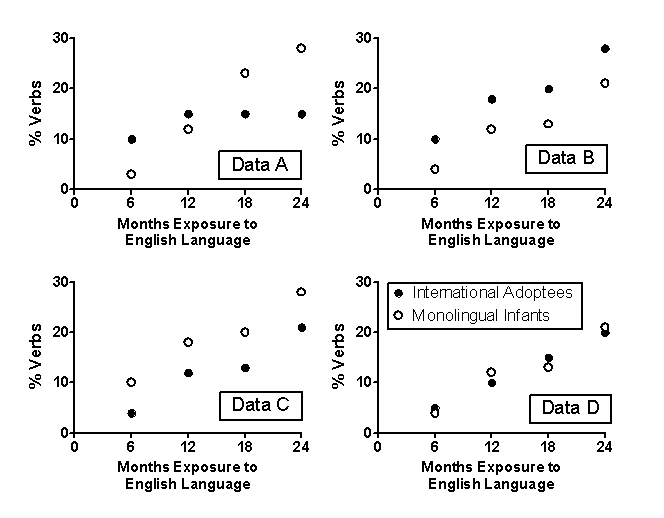Exam 9: Language and Thought
Exam 1: Psychology: Evolution of a Science456 Questions
Exam 2: Methods in Psychology400 Questions
Exam 3: Neuroscience and Behavior588 Questions
Exam 4: Sensation and Perception551 Questions
Exam 5: Consciousness406 Questions
Exam 6: Memory484 Questions
Exam 7: Learning469 Questions
Exam 8: Emotion and Motivation363 Questions
Exam 9: Language and Thought390 Questions
Exam 10: Intelligence317 Questions
Exam 11: Development382 Questions
Exam 12: Personality368 Questions
Exam 13: Social Psychology360 Questions
Exam 14: Stress and Health311 Questions
Exam 15: Psychological Disorders372 Questions
Exam 16: Treatment of Psychological Disorders339 Questions
Exam 17: Integrative Questions211 Questions
Select questions type
Damage to the front part of the left temporal lobe results in difficulty identifying:
Free
(Multiple Choice)
4.8/5  (37)
(37)
Correct Answer:
A
Means-ends analysis is one type of _____ reasoning
Free
(Multiple Choice)
4.9/5  (48)
(48)
Correct Answer:
A
The sentences "The dog chased the cat" and "The dog was chased by the cat" have _____ deep structure and _____ surface structure.
Free
(Multiple Choice)
4.8/5  (33)
(33)
Correct Answer:
A
Lauren has just begun to use two-word phrases,such as "give doll" and "throw ball." Lauren is probably about _____ months old.
(Multiple Choice)
4.8/5  (36)
(36)
Leanna,a bride to be,is glancing over an updated list of the people who will be attending her wedding reception.There actually will be an equal number of people from her family and from her fianc?Robert's family.Without counting,Leanna perceives that more people from _____ family will be in attendance due to the _____.
(Multiple Choice)
4.9/5  (42)
(42)
Human infants can distinguish among all of the contrasting sounds that occur in all human languages.
(True/False)
4.9/5  (40)
(40)
Researchers have just discovered a new drug to cure acne,but it has an 80% failure rate.According to the framing effect:
(Multiple Choice)
4.9/5  (47)
(47)
Human infants begin babbling between the ages of _____ months.
(Multiple Choice)
4.9/5  (40)
(40)
While solving problems,insight is associated with a burst of activity in the:
(Multiple Choice)
4.7/5  (34)
(34)
On average,gamblers with prefrontal cortex damage will show less of an emotional reaction to a loss than will non-brain-damaged gamblers.
(True/False)
4.8/5  (27)
(27)
Cross-cultural research on preliterate societies suggest that competency on reasoning tests depends MOST on:
(Multiple Choice)
4.8/5  (42)
(42)
Recent research suggests that language affects the way we process colours.
(True/False)
4.9/5  (44)
(44)
_____ is a mental activity that consists of organizing information or beliefs into a series of steps in order to reach conclusions.
(Multiple Choice)
4.8/5  (38)
(38)
Use the following to answer questions :
Scenario I
The scenario is based on and presents results consistent with the following studies:
Snedeker,J. ,Geren,J. ,& Shafto,C.L.(2007).Starting over: International adoption as a natural experiment in language development.Psychological Science,18(1),79-87.doi:10.1111/j.1467-9280.2007.01852.x
Snedeker,J. ,Geren,J. ,& Shafto,C.L.(2012).Disentangling the effects of cognitive development and linguistic expertise: A longitudinal study of the acquisition of English in internationally-adopted children.Cognitive Psychology,65(1),39-76.doi:10.1016/j.cogpsych.2012.01.004
Language development occurs in orderly stages,beginning with one-word utterances and progressing to two-word utterances,simple sentences containing function morphemes,and the emergence of grammatical rules.Psycholinguists have attempted to determine if language development is a consequence of cognitive development or if it reflects linguistic processes that occur independently of general cognitive development.Studies on the acquisition of a second language in internationally adopted children have provided insight into this research question.In a series of studies,Snedeker and colleagues (2007,2012)studied the acquisition of the English language in adopted preschoolers from China.These children had no exposure to the English language before being adopted by families in the United States.
Figure 9.1  -(Scenario I)Which reason BEST explains why the research question posed in Scenario I could not be answered by studying infants' acquisition of the English language and comparing it with infants' acquisition of the Spanish language in American-born bilingual homes?
-(Scenario I)Which reason BEST explains why the research question posed in Scenario I could not be answered by studying infants' acquisition of the English language and comparing it with infants' acquisition of the Spanish language in American-born bilingual homes?
(Multiple Choice)
4.9/5  (33)
(33)
A language acquisition device (LAD)is something that is acquired through experience.
(True/False)
4.8/5  (42)
(42)
The basis of means-ends analysis as a problem-solving technique is to:
(Multiple Choice)
4.8/5  (39)
(39)
Because the combined probability of events is always _____ than the independent probability of each event,it's always _____ probable that any one state of affairs is true than a set of events simultaneously.
(Multiple Choice)
5.0/5  (33)
(33)
A simple syntactical rule in the English language is "i before e except after c."
(True/False)
4.8/5  (37)
(37)
Showing 1 - 20 of 390
Filters
- Essay(0)
- Multiple Choice(0)
- Short Answer(0)
- True False(0)
- Matching(0)